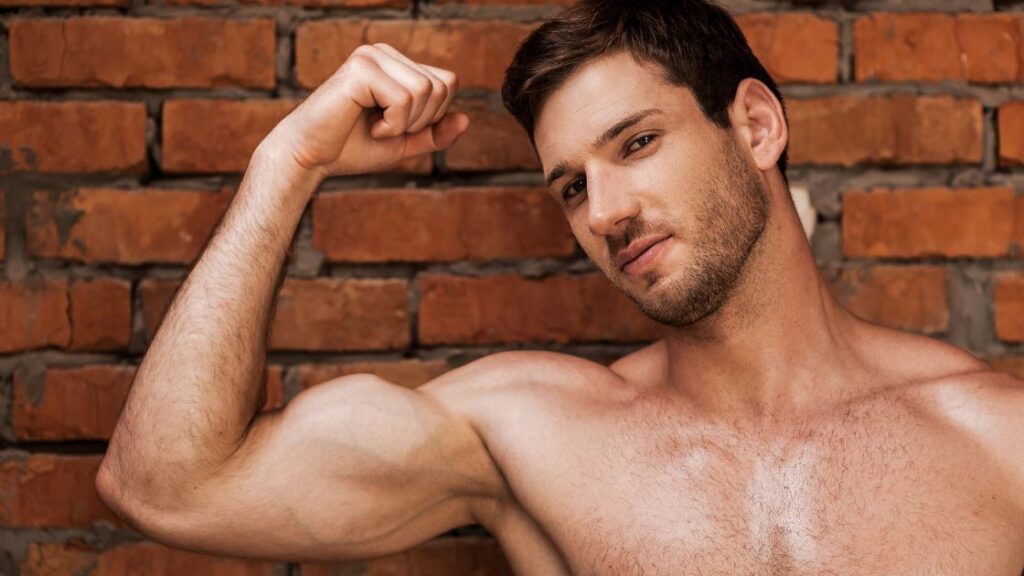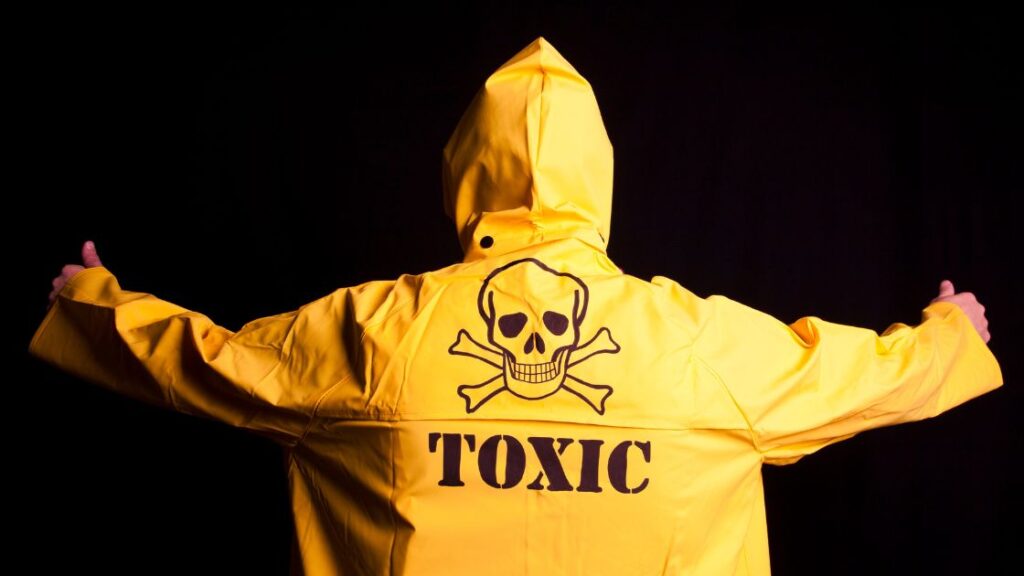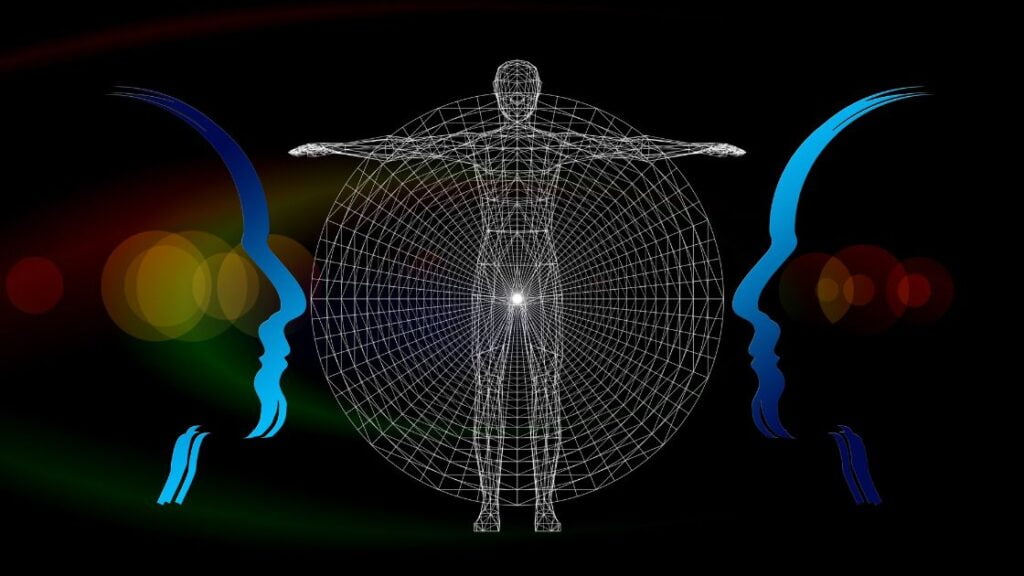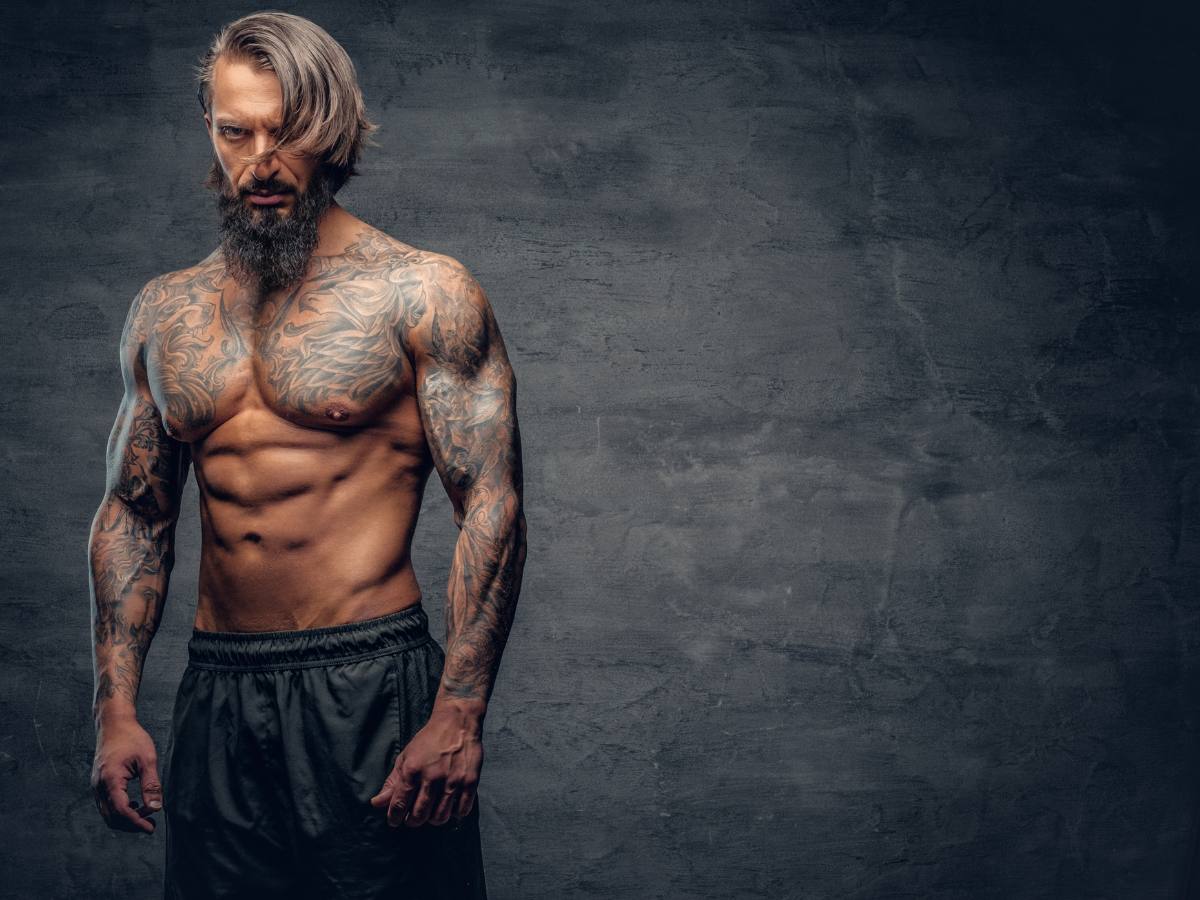Toxic Masculinity is the rigid gender role definition of manliness that can jeopardize the well-being of men and society at large. Being the mother of a son who has yet to learn about his roles in this world, this topic is really important for me to address. Of course, I can only state examples or results from research but to give you an insider’s perspective I have collaborated with Joe a fellow blogger, sports journalist, and editor to give you ‘men’s perspective on men’s issues. He was nice enough to take time out on short notice and answer the questions which I have shared at the end of this blog post.
While body positivity is being discussed at length for tackling body image issues in women,
there is not much buzz about body Image issues men or the male population face. In fact, if any male person tries to speak about such issues, they are confronted and ridiculed. Do you think I am wrong? Do you think men can get acceptances and support in whichever issue they are struggling with? Ok, then why are you familiar with terms like ‘not man enough’ ‘sissy’ and ‘be a man’.
Let me present to you a case study to get us started on building my case.
Table of Contents
ToggleBody Image Issues in Men and Online Bullying

Recently I came across an article that shared Tyler Kingkade’s (Senior Editor at Huffington Post) perspective about body image issues in men and in the comment section an anonymous person brutally criticized stating Tyler Kingkade cannot speak for all men and his opinion was atypical for men. Tyler struggled with his weight all his life and had been conscious of his body since his teenage.
He only began to see his avoidance of certain social situations as a body image issue when he was 27 years old. It took him so long because he was not anorexic but bulimic. He shared that he was unable to talk about it because his masculinity forbids it.
Now, I would like to look in the eye of the anonymous comment poster and ask him does he really thinks using the words ‘his opinion is atypical for men’ towards a man already struggling because of toxic masculinity is a great thing to do? You sit behind your computer leaving nasty anonymous comments about sensitive issues, you sir are a bully!
Facts and Figures about Body Image Issues in Men

Statistics argue that men suffer more body image issues than women but it is way less discussed. Dr. Phillippa Diedrichs from the center of appearance research at the University of the West of England conducted a survey recruiting 394 British men. Results revealed that more than 80.7% of men talk in ways that promote anxiety about their body image by referring to perceived flaws and imperfections, in comparison to 75% of women. Similarly, 38% of men would sacrifice at least a year of their life in exchange for a perfect body – again, a higher proportion than women.
Results of a Today Show/AOL Body Image survey in 2014 said that men worried about their physical appearance more than they worry about their health, their family, and professional success. It is noteworthy that 63% of men shared they “always feel like (they) could lose weight, 53% don’t like having their picture taken and 41 percent said they worry that people judge their appearance. Also, 44% of participants of the survey said that they feel uncomfortable wearing swim trunks (not to mention Speedos!) If these numbers are not alarming for you, I don’t know what is.
Where all of this body image issue in men is coming from?

Old-School Gender Roles
While gender roles are becoming more and more fluid and every new generation is more open-minded than its successors, we still have gender roles rooted deep into our unconscious. Men are still on the large seen as providers and protectors, hence are expected to be ‘strong’ both emotionally and physically.
Media
Have you seen those glossy pages of magazines showing ripped men in their undies? Or perhaps you have noticed the television commercials with men wearing supper fitted shirts that scream he works out! Our movies, television, and advertisement are loaded with unhealthy messages about masculinity and body types men must possess to be considered ‘manly’.
Superhero Costumes
Have you ever seen a young boy in a superhero costume? Superman? Batman? Hulk? Captain America? Literally, all of the superhero costumes even for the youngest preteen boy you can think of comes with built-in six-packs! Do you hear me? Built-in-six-packs for six years old! Guess which one (and only one) superhero does not have six-packs? Spiderman! because he himself is a teenager. But guess what? Spiderman’s costume also comes with six-packs for six years old kiddo.
Action Figures – Toys for Boys
I am not going to start an argument here that why we assume guns and cars are toys for boys but the dolls little ‘Ted’ is getting to play with our action figures. Now, what’s wrong with action figures? Everything! But the fact that they promote or encourage violence in young boys is a debate for another time. Here I am going to talk about the message they are promoting about masculinity and the manly body.
In the late 1990s, a classic study examined G. I. Joe action figures shared intriguing results. The study found that in 1964, Joe had what would equal a 32-inch waist and 12-inch biceps. By 1991, Joe had a six-pack and had lost 3 inches off his waist, but bulked his upper arms up to 16 1/2-inch biceps — nearly impossible to attain dimensions.
What are the consequences of toxic masculinity?

Anger Issues and Depression
Research conducted at the University of Central Florida was published back in 2004 by Stacey Tantleff Dunn, an associate professor of clinical psychology. Results of the study shared that when men were shown pictures of the idealized male figure — lean and young with lots of muscles— they became angrier and more depressed.
Other mental health issues
Just like women with poor body image, men with poor body image can develop mental health problems like depression, anxiety, anorexia, bulimia, Body Dysmorphic Disorder, and social anxiety.
Sexual Dysfunction and Poor Sex Life
No, I am not blowing it out of proportion; this is a science-backed fact that men with poor body image have difficulty enjoying their sex life Men with poor body image may feel too anxious during intimate moments and this additional stress may prevent them from achieving an erection at all. Not to mention the strain it brings to the relationship which can further contribute to poor life satisfaction and depression.
Substance abuse and Toxic masculinity
Another serious hazard the toxic masculinity and its impact on the body image of the male population is the abuse of steroids. Steroids have been a relatively new addition to the list of substance abuse but their popularity and market have grown rather quickly. Initially, some sports celebrities abused steroids and set bad examples, although athletes are constantly being penalized for using steroids this is not discouraging the general male population from abusing the steroids to pump their body and boost their manly strengths. This is a serious health hazard directly imposed by toxic masculinity and its relevance to body image issues.
Interview with Joe

Please Introduce Yourself:
My name is Joe Shackley and I write a blog called Being & Niceness. My aim is to explore philosophical works and themes within a moralist context; I try to use philosophy to help make the world a nicer place. I am a sports journalist in my day job and work as the deputy production editor of a kids’ football magazine called Match of the Day. I do almost all of my reading and writing on my train commute to work.
I try to write informative, fun, and thought-provoking blogs based on great philosophical works by thinkers that inspire me, and try to repackage those philosophical themes in a way that is accessible for all readers. I hope my posts entertain and inform my readers, but also improve their well-being whenever possible.
Q1: What does toxic masculinity mean to you?
Joe: I see toxic masculinity as a set of archaic, old-school values that place the sexes in historically dominant (men) and subordinate (women) roles. Men are expected to be strong and powerful. They’re not expected to cry, show weakness, or be in touch with their feminine side. For me, men are viewed as superior to women when it comes to toxic masculinity, and it is problematic for misguided ‘real men’ to see their fellow males demonstrate traits more associated with femininity – softness, sensitivity, gentleness, etc.
Q2: How and when you were introduced to toxic masculinity?
Joe: I have seen toxic masculinity ever since I was a child, but fortunately there wasn’t much of it at home. I think my parents often thought I might be gay because I was always quite in touch with my inner feminine Jungian Anima. And despite it also cropping up at times at university, generally, we were all quite progressive in terms of gender roles and sexual fluidity even then. I’ve seen it most prominently from my 20s onwards, after starting full-time work.
I think this is because it tends to stem from older people whose education and experiences at a younger age were a bit more rooted in those old school values I mentioned earlier. That’s not to say that young people aren’t capable of demonstrating toxic masculine traits – I just think we’re generally more clued up these days and accepting of people living different lives to those in the 60s, 70s, or 80s.
Q3: Have you ever received toxic comments about your masculinity?
Joe: I write about football and have played sports all my life, so I have been exposed to toxic masculinity here and there personally. A lot is actually said in jest, but the problem is that those jokes often just reinforce stereotypes and backward thinking. I sing in a band, I love musicals and performing, and am quite in touch with my feminine side, so I encounter toxic masculinity all the time.
Some things can be hurtful, and I know I’ve said plenty of things in the past too which would fall under this bracket, so I’m just as flawed as most people. I guess the key is in the intention – I would never want to make anyone feel bad, and so for that reason, we always to be mindful of the words we use.
Q4: When did you become aware of the toxic aspects of societal standards of masculinity?
The expectations of toxic masculinity are obviously all around you as a child, but I guess one doesn’t become aware of them until they have the intellectual tools with which to recognize them. I was probably beginning to realize and recognize these societal standards in sixth form (age 16). It was then that people in our classes were starting to come out as gay or gender fluid and it began to open my mind a bit to the different possibilities we all have.
I also studied Judith Butler and her Queer Theory in communication studies around then, and that would undoubtedly have had an impact. I was obviously an immature kid still then, but I think those experiences have helped to inform me today.
Q5: Do you think men have more or less body image issues in comparison to women?
It’s difficult to say whether men have more or fewer body image issues than women – all I can suggest confidently is that both have lots of crap to deal with in that respect. Once again, the word expectation is key – all the men one sees in reality TV and in glossy mags these days are ripped, tanned, and rugged; although they’re at least far more in touch with their femininity, even if some do act like alpha male idiots. We are now expected to be fit, slim, and well-groomed; they’re unrealistic ‘fantasy’ expectations for most people.
As for women, it’s difficult for me to go too in-depth, as I’m not one. But I can only imagine how difficult it is to deal with body image issues for women – whether it’s cellulite shots, make-up issues, hair, mum tums, whatever nonsense – the way celebrities are ripped apart by newspapers and magazines over the way they look is often appalling. I think it must be incredibly tough to cope with these unhelpful expectations as a woman.
Q6: Would you say body image issues among men over the generations have increased or decreased over the generations?
I would imagine that body image issues among men are at their apex – in many ways because we are actually more in touch (encouraged to be) with our femininity than ever before. While that is undoubtedly a good thing, it also means that men are taking more and more care over the way they look than ever before.
There is of course nothing wrong with that either – why should looking good be more associated with women anyway? That’s ridiculous. But the desire to meet these societal expectations also brings pressures. If one doesn’t conform to these standards, they’re exposed to potential ridicule or alienation. This is sad – we should all be free to look at how we want and be who we truly are.
Q7: How do you feel toxic masculinity has affected you as a person?
Toxic masculinity has made me more aware of how important it is to be open-minded, compassionate, understanding, and accepting. The world is full of so many different types of people – and that is something to be celebrated. Toxic masculinity has made me feel despair at times, sadness for others, and anger, too.
But I know it’s mostly a matter of education. And I want to do my bit with the blog Being & Niceness to try to erase toxic masculinity and its misguided values from people’s thoughts. So it has ultimately affected me in a positive way – because I realize that I want nothing to do with it, other than to eradicate it and champion values that promote love, compassion, and acceptance.
Q8: Who do you think is the major contributor to toxic masculinity? Society or media?
I would suggest that society and the media really go hand in hand when it comes to the proliferation of toxic masculinity. That obviously doesn’t include all media outlets, just as it isn’t everyone in a society sharing, spreading, and embedding those views into the wider discourse. There are always a few ‘bad apples’ who wish to push their own agenda – it’s up to the rest of us (with strong and compassionate consciences) to rail against and challenge these outdated views. These ideas exist in pockets of society – and this is then reflected in the media outlets prepared to share them. One very much appears to beget the other.
Q9: Do you think toxic masculinity is less popular in new generations in comparison to previous ones?
I have touched on this a little already, but I’ll add here that while it is almost certainly less prevalent in younger generations, toxic masculinity and its outdated agenda remain problematic in contemporary life. Boys are still being made to feel like they’re not ‘manly’ enough; young men are still expected to be breadwinners and heads of the household. It’s still unacceptable to be homosexual in many countries, and gay men and women are still abused in more progressive countries simply because of their sexual orientation.
I wasn’t alive in the 70s, so I can’t say how much better things are now, but I think we can safely assume great strides have been made. We now need to do even more to make consign toxic ideas on masculinity to the past where they belong.
Q10: What tips as a father you would like to share with parents for preventing toxic masculinity to seep into the next generations?
I’m not sure if I am the right person to be giving tips on parenting! But I think that it’s important to educate children in the right way. Teach them to treat others with love, respect, and kindness; ensure that they realize that men and women, just like every single person on the planet, are of equal value. I will do my best to make sure my son doesn’t judge others for how they wish to live their lives or pigeonhole people based on what society expects of them.
What we really need to do is repackage masculinity and its traits in a positive way – courage, strength, bravery, leadership, whatever it is. These are things to be championed, but not in the way which pits men as somehow superior to women. We are all human beings and we all deserve the same opportunities to experience a contented life on Earth. Idealistic drivel perhaps, but dispelling the myths of masculinity and its toxic expectations would be a good start. Thank you So much Joe for taking out time for us and sharing your thoughts.
Dear readers please visit his blog and follow him on Twitter for fresh content.








